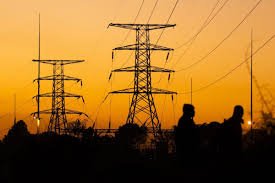The Association of Power Generation Companies (APGC) has disclosed that Nigeria’s national electricity grid has experienced a staggering 162 collapses over the past eleven years, highlighting persistent challenges in the country’s power sector.
Joy Ogaji, Managing Director and CEO of APGC, revealed these statistics during a Nigerian Electricity Regulatory Commission (NERC) public hearing in Abuja, focused on addressing recurring grid failures and widespread power outages.
“From the association data taken from 2013 till date the grid has collapsed 162 times,” Ms Ogaji stated during the hearing.
The revelation comes amid recent grid failures, including two collapses within a single week. The latest incident occurred last Saturday at approximately 08:15 a.m., plunging numerous cities into darkness, following a similar collapse just days earlier on Tuesday.
Ms Ogaji highlighted technical challenges facing the grid, explaining, “The level of frequency fluctuation and frequency crippling on the grid cannot be cured by a free governor.”
She elaborated on the severity of the problem, noting, “Before the grid code specified or the switch is up to like four. But we have done investigation and found out that sometimes the cripple is well over four, even up to ten, that is eating into somebody’s generation that would have fetched them money.”
The APGC’s research revealed compliance issues with grid operations.
“The association did a study and found out that 95 percent of the time, from 2013 till date, the grid has not been in compliance with the grid code requirement of 50 hertz,” Ms Ogaji disclosed, adding, “It has always been out of frequency requirement of the grid.”
She suggested a potential solution involving both spinning reserve and free governor mode implementation, particularly considering the impact of industrial operations.
“While I am not saying that spinning reserve is a solution, I believe that putting a spinning reserve and the free governor mode side by side can cure the volatility on the grid, because research shows that about hundreds of steel mills operate on our grid, and we know what steel mills does to frequency,” she explained.
The current situation reflects ongoing challenges in Nigeria’s power sector despite the 2013 privatization initiative, when the federal government privatized all power generation and 11 distribution companies while maintaining ownership of the transmission company. This restructuring was intended to enhance sector efficiency.
However, the power sector continues to face multiple challenges, including:
Electricity policy enforcement issues, regulatory uncertainty, gas supply problems, transmission system constraints, significant power sector planning shortfalls
























